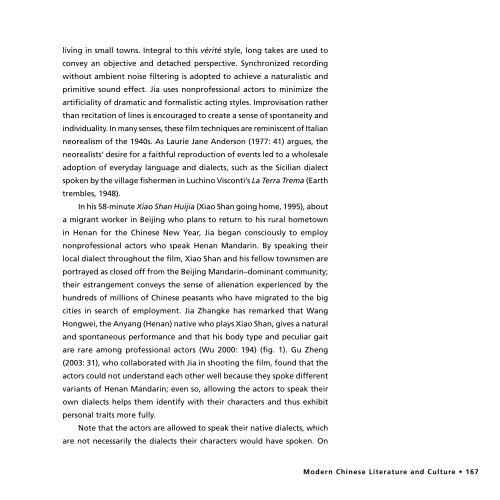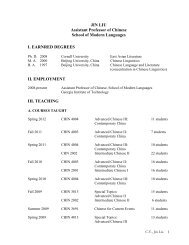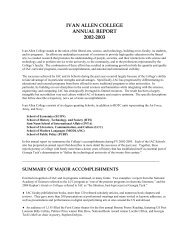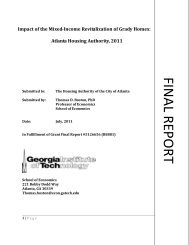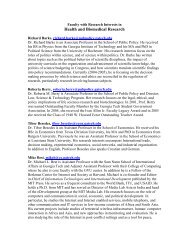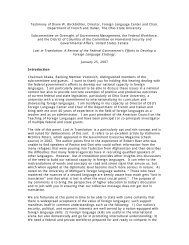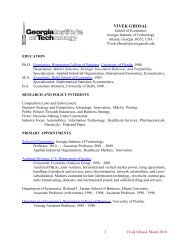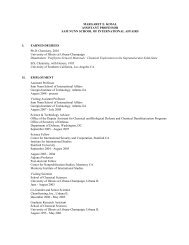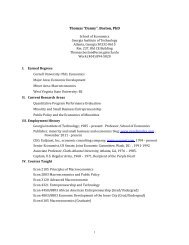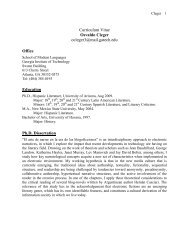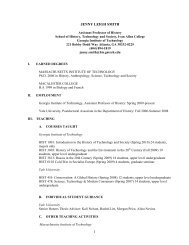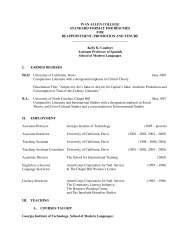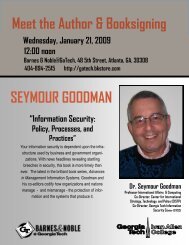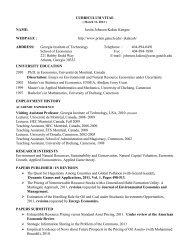Read this paper
Read this paper
Read this paper
You also want an ePaper? Increase the reach of your titles
YUMPU automatically turns print PDFs into web optimized ePapers that Google loves.
living in small towns. Integral to <strong>this</strong> vérité style, long takes are used to<br />
convey an objective and detached perspective. Synchronized recording<br />
without ambient noise filtering is adopted to achieve a naturalistic and<br />
primitive sound effect. Jia uses nonprofessional actors to minimize the<br />
artificiality of dramatic and formalistic acting styles. Improvisation rather<br />
than recitation of lines is encouraged to create a sense of spontaneity and<br />
individuality. In many senses, these film techniques are reminiscent of Italian<br />
neorealism of the 1940s. As Laurie Jane Anderson (1977: 41) argues, the<br />
neorealists’ desire for a faithful reproduction of events led to a wholesale<br />
adoption of everyday language and dialects, such as the Sicilian dialect<br />
spoken by the village fishermen in Luchino Visconti’s La Terra Trema (Earth<br />
trembles, 1948).<br />
In his 58-minute Xiao Shan Huijia (Xiao Shan going home, 1995), about<br />
a migrant worker in Beijing who plans to return to his rural hometown<br />
in Henan for the Chinese New Year, Jia began consciously to employ<br />
nonprofessional actors who speak Henan Mandarin. By speaking their<br />
local dialect throughout the film, Xiao Shan and his fellow townsmen are<br />
portrayed as closed off from the Beijing Mandarin–dominant community;<br />
their estrangement conveys the sense of alienation experienced by the<br />
hundreds of millions of Chinese peasants who have migrated to the big<br />
cities in search of employment. Jia Zhangke has remarked that Wang<br />
Hongwei, the Anyang (Henan) native who plays Xiao Shan, gives a natural<br />
and spontaneous performance and that his body type and peculiar gait<br />
are rare among professional actors (Wu 2000: 194) (fig. 1). Gu Zheng<br />
(2003: 31), who collaborated with Jia in shooting the film, found that the<br />
actors could not understand each other well because they spoke different<br />
variants of Henan Mandarin; even so, allowing the actors to speak their<br />
own dialects helps them identify with their characters and thus exhibit<br />
personal traits more fully.<br />
Note that the actors are allowed to speak their native dialects, which<br />
are not necessarily the dialects their characters would have spoken. On<br />
Modern Chinese Literature and Culture • 167<br />
MCLC 18.2.indd 167<br />
12/20/06 2:01:34 PM


